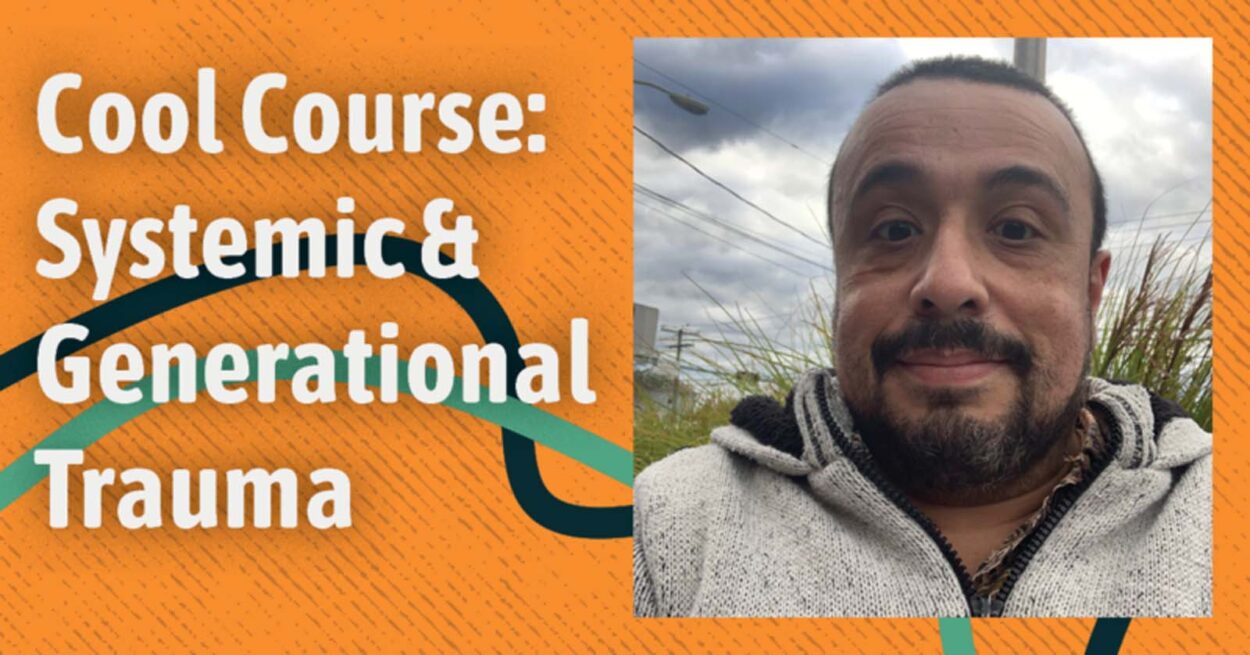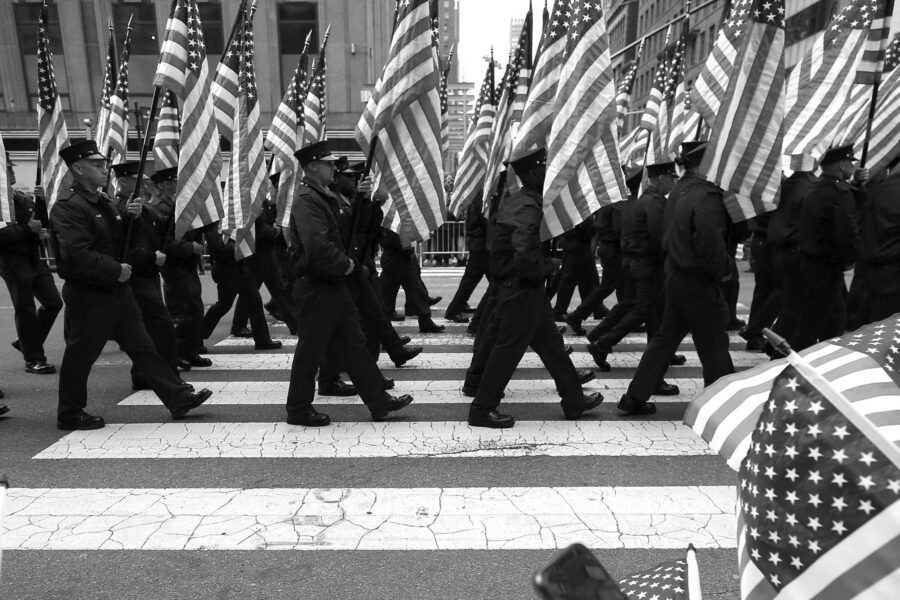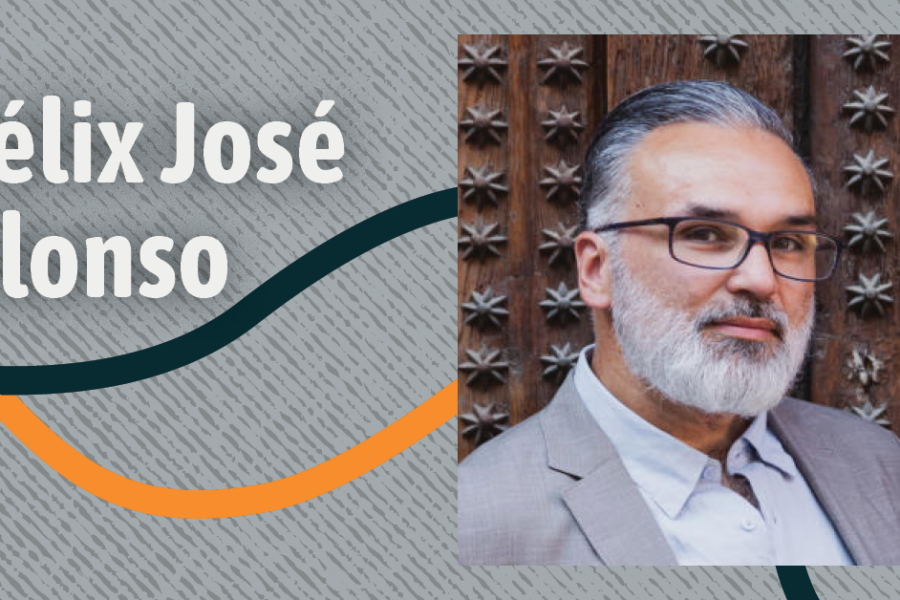“I love the ways that the arts and social sciences can be brought together,” says Ángel L. Martínez, PhD, who teaches the course Systemic & Generational Trauma. The seven-week, asynchronous online class is wide-ranging and a bit of an “experiment,” says Martínez. Under the umbrella of Human Development, it looks at the response to trauma, the systems that foster it, and the experiences of the students themselves. The class asks how to build a path toward healing and justice. Through a reading of The Politics of Trauma by Staci K. Haines, discussion, journal entries, and creative exercises, students explore ways to bring together trauma healing and social justice by investigating examples of systemic and intergenerational trauma.
Ángel Martínez is an affiliate faculty for Antioch and an adjunct assistant professor at Hunter College in New York City, where he lives. He recently designed curriculums about conflict resolution and has a background in Hispanic Studies. He’s also a musician, has been performing poetry for three decades, and is a graduate of Antioch University’s PhD in Leadership and Change. His dissertation “Young, Gifted and Brown”—a study of Puerto Rican diaspora in higher education—takes the form of an AutoEthnoPoetic journey, a performative poetic PhD Martínez’s continued passion for combining the arts and social sciences is clear in Systemic & Generational Trauma, where he hopes to draw from his own practice to create an environment of sharing, creativity, and learning that’s as open as possible, allowing students to discover what they’re excited about in the work.
Teaching Solidarity through Social Science and Art
“We’ve had a lot of conversations nationally about race, and oppression, and how that relates to trauma,” says Martínez. This ever-present societal discussion was an impetus for the course, which is a dual examination of intergenerational and systemic trauma. Martínez also recalls the influence of his mentor Carolyn Kennedy, PhD, who taught Indigenous Studies and oversaw his poetic dissertation. As he says, “She’d be proud to see how my work in human development has evolved from that PhD.”
Systemic and generational trauma are events that happen to people that they carry from the past and from current violence they face institutionally. They include racism, legacies of genocide, legacies of slavery, and legacies of displacement. “Migrations are usually very traumatic, and even being in a diaspora can be very traumatic,” Martínez says. “The questions are: What trial do you face? How do you deal with it? What do you do with it?” Martínez wants to look at the trauma of the individual and the collective, and to use this to move toward justice. “Understanding that your pain and my pain are related somehow,” says Martínez, “that’s what solidarity is all about.”
Martínez teaches the value of social science while also exploring its limits. Trauma is not just an abstraction, it’s a deeply-felt personal experience that often defies articulation. Accordingly, Martínez views the arts as a response to the challenge of articulation, a tool for trauma survivors and the descendents of those survivors. To this end, Martínez will be drawing from a variety of recent cultural references and older sources, ranging from materials produced from Standing Rock, the Poor People’s Campaign of the 1960’s, the AIDS epidemic, and the Dylan Thomas poem Do Not Go Gentle into That Good Night. “I make sure the students experience creative expression, because a lot of it talks about conflict and trauma,” says Martínez. “That’s what I love about doing this course.”
A Place for Collective Healing
The main text of the course—The Politics of Trauma by Staci K. Haines—is central to Martínez’s concept of connecting individual trauma to creative expression and collective movements for justice. In the book Haines argues that the individual experiences of body and mind can be bridged by studying the social, political and economic roots of trauma.
This bridging is a useful perspective, as Martínez will be encouraging his students to share their personal experiences. The material will bring up a lot of uneasy feelings, but the course strives to be a safer place for those who might feel vulnerable with their stories. “I want to give them the best learning experience possible,” says Martínez. “That’s always my concern.” With The Politics of Trauma, weekly discussions and creative exercises, Martínez hopes to connect individual suffering to the collective struggle for a better earth. “Your healing and my healing can be tied together, if we’re willing to take a chance on it,” says Martínez.
Martínez has his own experiences of generational and personal trauma. He recalls his Puerto Rican heritage and the recent devastation of Hurricane Maria. As he says, “[The course] will be a good way for people to explore trauma like that a little more in detail, and to feel comfortable talking about it.” As a resident of New York City, Martínez also thinks of COVID-19. “I remember living in New York when the plague started,” he says.“It was weird not hearing planes.” Such details are what connect individual trauma to shared experience.
It is Martínez’s hope that detailed study and expression of trauma, whether in the form of social science, art, or both, will extend this sharing and build larger movements for healing. “I don’t know how these seven weeks are going to end,” says Martínez. “But I hope that this collection of materials, questions and ideas can start a good process. The healing is not over. The war for justice is not over. But this is a good place to start.”
You can learn more about Ángel L. Martínez on his faculty page. Additionally, you can learn more about our BA in Human Development and our many course offerings, including, Systemic & Generational Trauma.




